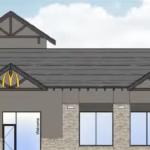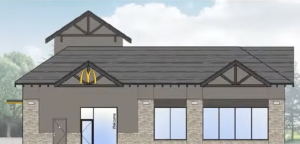Colorado’s Jeff Hurd offers new compromise for extending health care subsidies amid congressional gridlock
The Grand Junction Republican joined other U.S. House lawmakers in calling for a two-year extension of the subsidies, along with income caps, as part of a plan to avoid a surge in health insurance costs next year

Larry Robinson/Grand Junction Daily Sentinel
A Colorado U.S. House Republican who is among a handful of lawmakers from his party supporting an extension of soon-to-expire health care subsidies is offering a new plan for how the measure can win bipartisan support.
U.S. Rep. Jeff Hurd, a Grand Junction Republican representing much of western and southern Colorado, issued a joint statement on Monday alongside other House lawmakers calling for a two-year extension of subsidies for health insurance plans purchased through the Affordable Care Act.
The issue is at the heart of the federal government shutdown that’s been ongoing for more than a month.
Democrats are demanding an extension of the subsidies, known as the Enhanced Premium Tax Credits, that were originally passed under former President Joe Biden and are now set to lapse at the end of this year. Republicans have refused to include an extension as part of their government funding proposal, which remains blocked in the U.S. Senate, where most Democrats have voted it down more than a dozen times.
Without the subsidies, average out-of-pocket insurance costs will surge next year for those who purchase their health plans through Affordable Care Act marketplaces.
Saying on Monday that “too many Americans have lost faith” that Republicans and Democrats can work together, Hurd joined Reps. Don Bacon, R-Nebraska, Tom Suozzi, D-New York, and Josh Gottheimer, D-New Jersey, in calling for “common ground, especially when it comes to lowering health care costs.”
They released a list of “bipartisan principles” for temporarily extending and reforming the enhanced tax credits. Those include:
- A two-year extension of the subsidies, up from a one-year renewal that Hurd and other lawmakers had initially proposed as part of a bipartisan bill introduced in September
- An income cap for receiving the subsidies, which would be phased out for households earning between $200,000 and $400,000. Currently, there is no income cap on the subsidies.
- Measures to crack down on “improper payments”, such as by requiring that Affordable Care Act marketplaces check death records, and develop a standard of proof to determine when an insurance agent or broker should be allowed to continue operating on the marketplaces and better notice requirements for recipients
The four lawmakers, including Hurd, said that while “we may not agree on every ideal outcome,” they believe the solutions they’ve proposed present a “fair, reasonable path forward on the future of the Affordable Care Act’s Enhanced Premium Tax Credits.”
“Compromise isn’t rocket science, and it shouldn’t be treated like a weakness,” they said. “Our hope is that this shared statement of principles will inspire bipartisan collaboration across Washington and help get Congress back to work for the American people.”
The future of the tax credits continues to take on urgency now that open enrollment for next year’s health plans has started.
Colorado’s individual marketplace, Connect for Health Colorado, released final figures last week showing that average insurance premiums will double statewide next year if the subsidies are allowed to expire.
Cost increases could be even more severe in the state’s rural areas, like the 3rd Congressional District, which Hurd represents.
Colorado’s Western Slope already sees higher premiums due to the elevated cost of providing health care in rural areas, and some mountain resort communities have the highest uninsured rate in the state.
According to the Colorado Division of Insurance, annual out-of-pocket costs for a standard silver level insurance plan on the Western Slope could increase by $20,000 in 2026. An analysis by Connect for Health Colorado shows that some Western Slope households will see insurance premium increases of more than 200% without the federal subsidies next year.
State officials have said there’s still time for Congress to renew the subsidies, even as the fight to do so bleeds into the open enrollment period, which started on Nov. 1 and will last through Jan. 15.
But it’s unclear where lawmakers may be able to strike a compromise.
Democratic leaders are holding out for a permanent extension rather than a temporary renewal. Some Republican lawmakers who are open to an extension don’t want it to be tied to the funding bill that’s needed to reopen the government, saying they’ll negotiate on the issue only after government funding is restored.
Hurd, alongside a dozen other GOP House lawmakers, sent an Oct. 21 letter to Republican House Speaker Mike Johnson saying they “firmly believe that the government funding debate is not the time or place to address healthcare issues.”
“Once the government is reopened, however, we should immediately turn our focus to the growing crisis of healthcare affordability and the looming expiration of the enhanced Affordable Care Act premium tax credits,” the lawmakers wrote.

Support Local Journalism

Support Local Journalism
As a Summit Daily News reader, you make our work possible.
Summit Daily is embarking on a multiyear project to digitize its archives going back to 1989 and make them available to the public in partnership with the Colorado Historic Newspapers Collection. The full project is expected to cost about $165,000. All donations made in 2023 will go directly toward this project.
Every contribution, no matter the size, will make a difference.










